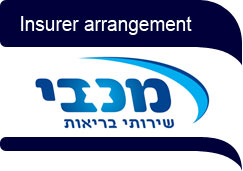If the allergist, after receiving the information from the referring physician and from the patient (and after carrying out prick tests in the case of food allergens), thinks that there is a need of a drug or food challenge to confirm or rule out an allergy, then he will refer the patient to the allergy clinic in the hospital where a challenge can be performed.
After a consultation with an allergist in the hospital, the testing will start. In the case of a food allergen the hospital doctor may decide to redo the prick tests. Then, the patient will receive a small amount of the food or drug suspect of eliciting an allergy, through the mouth and under controlled conditions, so that if there is a reaction he will immediately receive the necessary medical treatment. In the absence of a reaction, the dose of the food or drug suspect of eliciting an allergy will be escalated until a therapeutic dose of the drug or a normal food portion is reached. The patient will be monitored for two hours after the last dose. If still there is no reaction, the patient is released with a summary that explains that there was no reaction during the surveillance period. However, to be sure that there is no allergy, we will have to wait for another week because there are delayed reactions that may occur even several days after the challenge. However, dangerous reactions occur during the observation period, so that no dangerous response is expected at home, if at all.
If after a week there is still no reaction, we can rule out allergy to the tested drug or food.
If at any stage there is a reaction, so the patient will be diagnosed as allergic to the tested drug or food.
The reason to make these challenges only in a hospital setting is that there is a possibility of a dangerous reaction and therefore the patient must be tested where all the appropriate infrastructure to handle a reaction is available. In addition, the whole test sometimes takes some hours. Therefore, the appropriate framework to test is in the hospital day care.





